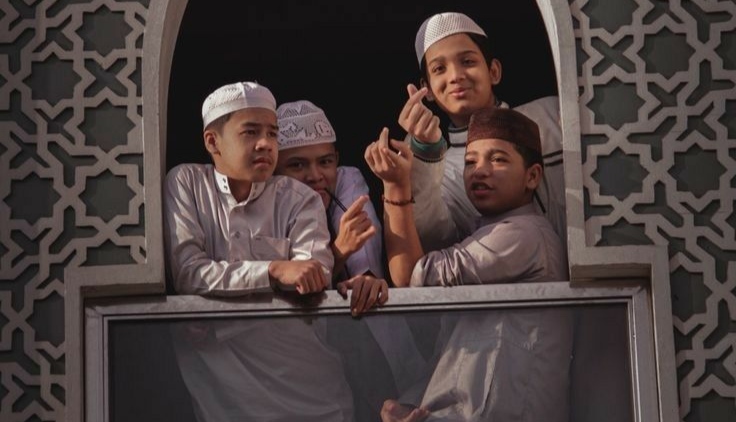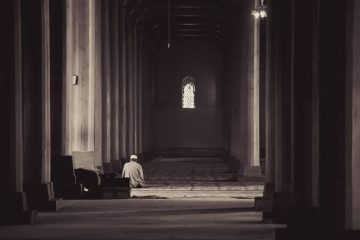
- Why Contentment in life is Important?
- Contentment in Islam
- The Quran has many ayaat advising us not to be distracted with the worldly allurements
- When the Muslim wakes up in the morning, what are we taught to say?
- When we get dressed, what are we taught to say?
- When the Muslim finishes eating, what are we taught to say?
- When the Muslim exits from the bathroom, what are we taught to say?
- When the Muslim sees a person with a disability, what are we taught to say?
- When the Muslim attains or accomplishes something, what are we taught to say?
- If the Muslim fails to accomplish something? We are to say:
Why Contentment in life is Important?
The concept of being contented is very important in our daily life. If one is contented, he will live in peace, harmony and happiness. These qualities can’t be purchased or acquired through wealth, property, position or fame. If a person is not contented, he will drive himself crazy.
He will do his best to satisfy his needs, but never ever will he be happy or satisfied. He will never have peace of mind. He may end up being schizophrenic and he may continue to live in anxiety and have mental disturbances.
The capitalistic society puts heavy pressure on the individual so as to produce or to perish and to compete or to be fired. Such an economic system makes the rich richer and the poor poorer. In such a society there is no contentment, no satisfaction and no happiness.
The same thing is to be applied to other non-Islamic societies. This crisis and psychological turmoil does happen in any Muslim society, where Muslims are not practicing the teachings of Islam. Hence, we have been advised by Allah and His Prophet Muhammad (saw) on how to be contented.
Contentment in Islam
In order to live in peace and harmony, in order not to be deceived with the worldly entertainments, in order not to be distracted with what others may have and in order to be contented and satisfied with what you have; our Prophet (saw) advised to look at those who are lower than us.
By looking at the situation of those who have less salary, less position, less property and less wealth, we will be grateful to Allah for all the blessings we have earned in life. Reported by Abu Hurairah that the Messenger of Allah said:” Look at those who are lower than you, and don’t look at those who are higher than you, so that you will not disgrace the blessings of Allah on you.” (Agreed)
To avoid anxiety and to avoid worries and uneasiness, one has to be contented and satisfied with what he has. To fulfil your needs, desires and your worldly requirements, one has to look at the situation of those who are less advantageous.
In this respect the following is reported by Abu Hurairah that the Prophet (saw) said:” When a person sees a person who has better wealth and beauty, let him look at the ones who are less than him.” (Bukhari).
To be contended, one has to remember that he should not cheat others to get some of the worldly gains of wealth and property. He should not run after life. He should have a degree of satisfaction in obtaining what he is aiming at.
He should recognize that he is not to live an eternal life here. He should realize that by running after life, he will be a slave to this world. The Prophet (saw) said:” Forsake worldly pleasures, Allah will like you, and forsake what other people have, mankind will like you.”
In another hadith, the Prophet (saw) warned all those who are eager to obtain money, property and wealth. He warned them not to drive themselves crazy for these things.
The Prophet said:” Miserable is the one who is a worshipper of the dinar and the dirham; the one who is after the velvet and the long clothing. If he is given of them, he will be satisfied; however, if he is not given from them, he will not be pleased.” (Bukhari)
Contentment is a treasure that will never be depleted. We have to be contented and satisfied with the little we have. We do our best; we strive very hard and leave the results in the hands of Allah. Remember that the Prophet (saw) never left anything after his death except his horse, his weapon and a peace of land entrusted to be used as a charity.
The Quran has many ayaat advising us not to be distracted with the worldly allurements
- In one place, Allah informs us in Surah Al-Kahf that we should not over indulge in the good things; i.e., wealth and children:” Wealth and sons are allurements of the life of this world. But the things that endure, good deeds are best in the sight of your Lord, as rewards, and best as the foundation for hopes.” (Al-Kahf: 46)
- In another place, Allah informs us in Surah Al-Hadid that the worldly affairs are temporary entertainment where people may be deceived:” And what is the life of this world, but goods and chattels of deception?” (Al-Hadid: 20)
- In another place, Allah instruct us in Surah Al-Imran not to be overwhelming by the worldly enticements, and its attractions:” Fair in the eyes of men is the love of things they covet: women and sons; heaped-up hoards of gold and silver; horses branded for blood and excellence; and wealth of cattle and well-tilled land. Such are the possessions of this world’s life; but in nearness to God is the best of the goals to return to.” (Al-Imran: 14)
Islam has equipped the believer with the tools necessary in keeping the “smile” part and parcel of your everyday appearance. One of these tools on its own can help you life your mood and help you lead a happier life, if understood and implemented that is.
This one tool is known as “satisfaction with the choosing of Allah”. To stress the importance of this divine formula, ponder over the following:
When the Muslim wakes up in the morning, what are we taught to say?
“Praise be to Allah, the One who brought us back to life after causing us to die..”[Bukhari]
When we get dressed, what are we taught to say?
“Praise be to you oh Allah, You clothed me with this!” [Abi Dawood, At-Tirmidhi]
When the Muslim finishes eating, what are we taught to say?
“Praise be to Allah, with an abundant, beautiful, blessed praise..” [Bukhari]
When the Muslim exits from the bathroom, what are we taught to say?
“Praise be to Allah, the One who removed the impurities from me and relieved me.” [Ibn Majah]
When the Muslim sees a person with a disability, what are we taught to say?
“Praise be to Allah, who has spared me from what he has been afflicted with.” [at-Tirmithi]
When the Muslim attains or accomplishes something, what are we taught to say?
“Praise be to Allah, by whose blessing good things happen!” [Ibn Majah]
If the Muslim fails to accomplish something? We are to say:
“Praise be to Allah, in all cases.” [Ibn Majah]
Isn’t that just amazing?! The Muslim finds himself perpetually alternating from one form of praise to another regardless of the situation’s ease or hardship. Yes, this is the sweet life of a believer: Gratitude during prosperity & patience during adversity, a reward from Allah in both cases, a win-win situation.
These words are guidance for us during our most difficult times. They allow us to find perspective even during hardship.
Even the non-Muslims who merely spend time with Muslims are witness to this! In an article titled: ’The Garden of Allah’, Colonel Ronald Bodley (British army officer, author and journalist) tells the world:
“In 1918, I turned my back on the world I had known and went to north-west Africa and lived with the (Muslim) Arabs in the Sahara. I lived there seven years. I learned to speak the language of the nomads. I wore their clothes, I ate their food, and adopted their mode of life. I became an owner of sheep and slept on the ground in the Arabs’ tents.. ” He goes on to say: “Those seven years which I spent with these wandering shepherds were the most peaceful and contented years of my life.”
They take life so calmly and never hurry or get into unnecessary tempers when things go wrong. They know that what is ordained is ordained; and no one but God can alter anything. However, that doesn’t mean that in the face of disaster, they sit down and do nothing.
“To illustrate, let me tell you of a fierce, burning windstorm of the sirocco which I experienced when I was living in the Sahara. It howled and screamed for three days and nights. It was so strong, so fierce, that it blew sand from the Sahara hundreds of miles across the Mediterranean and sprinkled it over the Rhone Valley in France. The wind was so hot I felt as if the hair was being scorched off my head. My throat was parched. My eyes burned. My teeth were full of grit. I felt as if I were standing in front of a furnace in a glass factory. I was driven as near crazy as a man can be and retain his sanity. But the Arabs didn’t complain. They shrugged their shoulders and said: “Mektoub!” Meaning: “It is written.”
”But immediately after the storm was over, they sprang into action: they slaughtered all the lambs because they knew they would die anyway. After the lambs were slaughtered, the flocks were driven southward to water. This was all done calmly, without worry or complaining or mourning over their losses. The tribal chief said: “It is not too bad. We might have lost everything. But praise be to God, we have forty per cent of our sheep left to make a new start.”
”The seven years I spent with the Arabs convinced me that the neurotics, the insane, the drunks of America and Europe are the product of the hurried and harassed lives we live in our so-called civilization.”
”As long as I lived in the Sahara, I had no worries. I found there, in the Garden of Allah, the serene contentment and physical well-being that so many of us are seeking with tenseness and despair.”
Dear Muslim, haven’t you noticed? The world is now turning to you for answers! In the quest for content, they gaze earnestly at your keys. So be satisfied with the tools of your ancestory. Learn and acknowledge the tools you have been equipped with to deal with the hardships of Dunya.
’What blessing can you think of to share with the Ummah?



very important reminder